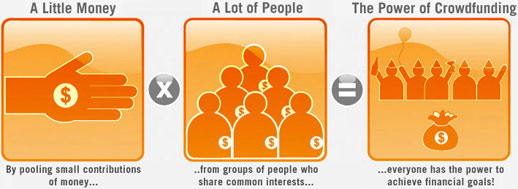With our recent finance class discussions about raising
capital, it seems the opportune time to have a relevant capital related event
in the world of coal. On Thursday, May 9th, a University of
Washington professor’s goal to crowd source $18,000 for an investigation on
air-quality related to coal trains, was reached. This is a perfect example of
how people have the power to influence business, or causes they believe in,
through non-traditional capital raising channels. 

Professor Jaffe had previously found difficulty in getting his
research proposal funded through typical channels. As we talk more about the
importance of social factors in business, specifically stakeholder engagement,
this is a prime example of how the “traditional” system leaves them out of the
decision making process. If public option and concern had been criteria for funding,
would Jaffe have received funding at his first request? Clearly there are other
issues at play regarding funds for research, but it is an important angle to
consider.
According to the press release in Friday’s Seattle Times, Jaffe
plans to set up air monitors along the tracks, possibly north of Seattle,
starting in July. The goal is to see if trains affect air quality, to help
inform how building a new coal terminal might affect people up and down the
tracks.
Example of crowdfunding are popping up all over, for every
cause you can imagine. This trend speaks to the power that people have to shape
the future of business, both for good and bad. Crowdsourcing, particularly with
the ease of internet communication, allows for vast swaths of people to connect
around an issue and put their dollars to work. Here is a great example: over 1
Million dollars raised to purchase the historic Tesla research site in New York
for a future museum site. Who initiated it? An online cartoonist in Seattle,
fondly known as The Oatmeal.
We see examples of crowdsourcing gone array as well. With
recent political campaign donation caps removed, power and influence has been transferred
to those with dollars to spare.
In addition to the strictly donation based capital fundraising,
I have been inspired to see new forms of loans pop up, and two great examples
are from BGI Alumni: Slice Finance and Community Sourced Capital. Both are
helping to reshape the options business owners have when searching for capital,
and bring the community stakeholders back to the table. My younger brother is searching for capital investors through a similar channel: Upstart.com. It is wonderful to see so many options beyond taking a bank loan or pursuing traditional routes to raise money for ideas.
Does anyone have experience working with any alternative community sourced funding for their business ventures?
Does anyone have experience working with any alternative community sourced funding for their business ventures?
Lauren, glad to see you haven't moved completely away from the topic of coal trains -- and I found your story of the funding of Jaffe's work particularly powerful. I'm glad to see crowd funding used for this purpose and hope it stimulates other similar proposals. Guess I need to pay more attention to this whole sector.
ReplyDeleteAnd yes, the whole area of impact investing and alternative sources of capital is booming -- FINALLY! Money has long been the missing link in a whole host of social enterprises, and it's a problem that's finally begun to capture the public's attention. I expect many good things to emerge over the next three years.
Lauren, What a cool post. I like crowd funding and other "community sourced capital" precisely for the reason that you articulated. It democratizes funding in a powerful way, but also gives people a way to speak their voice about issues that are important to them. In the same way that campaign contributions are free speech, I appreciate democratic intent of crowd funding.
ReplyDelete